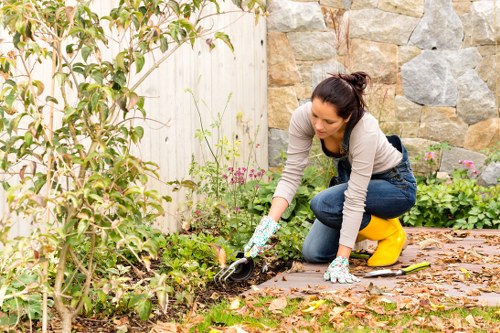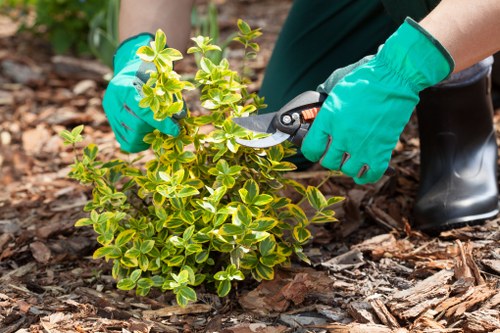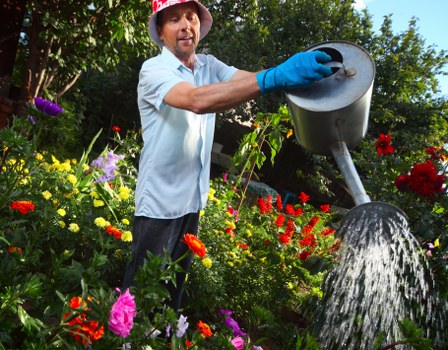Gardeners Westminster: Cultivating Urban Green Spaces
Introduction to Gardeners Westminster

Gardeners Westminster represents the heart of urban gardening, where a passion for nature meets the unique culture of the Westminster area. In this bustling urban environment, local gardeners work relentlessly to create small pockets of lush green havens, transforming concrete landscapes into blooming paradises. The notion of urban horticulture in Westminster is not just about planting flowers and herbs; it is a vibrant community movement that emphasizes sustainability, creative design, and a deep connection to history. From rooftop gardens to community plots, every corner offers an inspiring story of renewal and unity. People of all ages join together, sharing knowledge and techniques, and making a lasting impact on the local environment.
In the heart of London, Westminster gardens have emerged as icons of resilience and creativity. Residents understand that even the smallest patch of soil can nurture impressive growth and beauty, no matter how limited the space may be. The energy around gardening here is infectious, as local communities use green spaces to enrich both the environment and their lives. It is a reminder that nature is an essential part of urban living, bringing balance to the fast-paced modern world. With every seed planted, there is a story of hope, commitment, and the desire to build something lasting for future generations.
Within the vibrant corridors of Westminster, the gardening movement takes on a life of its own. The dedication of local gardeners creates a unique blend of tradition and innovation, where age-old horticultural practices merge with freshly discovered techniques influenced by modern concerns—especially ecology and sustainability. As urban spaces continue to evolve, the efforts of these gardeners serve as a testament to community spirit and the timeless connection between humanity and nature. This movement reassures citizens that transformative change begins with small, dedicated efforts, making Westminster a shining example of how urban regions can blossom into natural sanctuaries.
Historical Roots and Philosophy Behind Gardeners Westminster

The rich historical tapestry of Westminster forms the backdrop of its gardening movement. Established centuries ago, Westminster has been home to countless historical events and cultural revolutions. The gardens in this area are more than just plots of land; they represent a lineage of passion that has been nurtured through generations. Early Victorian gardeners laid the foundation with classic English garden designs that embraced symmetry and natural beauty. Their philosophy of integrating ornamental plants with functional spaces continues to influence local practices today.
Historical landmarks and long-standing traditions play a pivotal role in how modern gardeners approach their craft in Westminster. Many local gardening enthusiasts draw inspiration from archival records, vintage seed packets, and traditional horticultural methods handed down over time. They integrate these timeless ideas with contemporary techniques to create spaces that are both aesthetically pleasing and environmentally friendly. In many cases, these gardens serve as open-air classrooms where lessons of history blend with sustainable practices. This unique mix honors the past while encouraging future innovations.
Within this historical context, the philosophy of the local gardening community in Westminster centers on respect for nature and an enduring commitment to sustainability. Gardeners strive to create environments that are nourishing not only to plants but also to the community. Their belief is simple yet profound: every garden is a living museum that tells the story of the people who tend it. Passion and heritage interlace to foster a nurturing space where tradition meets modernity. This mindset empowers both novice and seasoned gardeners to experiment and innovate while staying true to the enduring principles of natural beauty and ecological balance.
Modern Techniques and Sustainable Practices in Urban Gardening

Today, the world of Gardeners Westminster is evolving with a focus on modern techniques and sustainable practices. In an era characterized by rapid technological advancements, local gardeners have embraced smart gardening systems that monitor soil moisture, temperature, and light exposure. By leveraging innovative technology, these green enthusiasts are able to optimize plant growth and reduce water wastage. This infusion of technology ensures that urban gardens are efficient, eco-friendly, and resilient against climate challenges.
Many Westminster gardeners incorporate organic methods in their daily practices to promote healthy plant growth. They prioritize natural fertilizers such as compost, manure, and green waste recyclers over synthetic alternatives. Techniques like permaculture and companion planting have become popular, as they not only yield healthier plants but also encourage biodiversity. Local experts offer workshops and classes that guide beginners on topics from seed propagation to pest management, ensuring that sustainable gardening practices are passed on to future generations.
Within urban environments, creating a resilient garden demands innovation and careful planning. Gardeners using container planting, vertical gardens, and other creative solutions overcome the limitations of tight urban spaces. They employ eco-friendly practices such as rainwater harvesting and solar-powered garden lights to minimize their ecological footprint. In addition, a variety of lists and bullet points often outline the key steps to success, such as:
- Choosing native plant species
- Using natural pest control methods
- Implementing water-saving irrigation techniques
Community Involvement and Urban Gardening Projects

Community engagement forms the cornerstone of the Gardeners Westminster movement. Across the district, local clubs organize regular events, workshops, and open garden days that invite both residents and visitors to participate in the gardening experience. These social initiatives not only cultivate green spaces but also forge lasting bonds among community members. Gardens become venues for lively discussions, shared expertise, and mutual support. The spirit of collaboration is palpable, making every project a collective achievement that celebrates nature, art, and social solidarity.
Many urban gardening projects in Westminster are spearheaded by local volunteers who work tirelessly to transform underutilized spaces into vibrant green oases. These projects often involve the restoration of historic garden sites and the conversion of vacant lots into community gardens. In these endeavors, the use of innovative design strategies—including raised beds, water-efficient landscaping, and recycled materials—ensures that every project stands as a model of sustainable urban development. Local organizations collaborate with schools, civic groups, and municipal bodies, creating programs that both educate and empower the community.
Encouraging participation from a diverse cross-section of society, many events are designed to be family-friendly and accessible to all ages. Local festivals often feature gardening competitions, art installations, and nature walks that allow participants to experience the beauty of their community firsthand. Additionally, seasonal events celebrate the cyclical nature of plant life, inviting community members to share in the harvest and learn about organic farming techniques. These hands-on experiences are not only educational but also instill a sense of pride and ownership in the upkeep of shared spaces, reinforcing the idea that every small contribution can yield a collective reward.
Local Relevance: Exploring Westminster and Its Nearby Areas

The influence of Gardeners Westminster extends far beyond the boundaries of the region itself, touching neighboring communities with similar passions for horticulture and urban renewal. This section highlights 14 key areas around Westminster that play a significant role in the urban gardening landscape. Pimlico offers charming residential spaces where quaint gardens bring a touch of nature into inner-city living. Just a short walk away, Belgravia is renowned for its meticulously maintained private gardens that exude elegance and tradition, inspiring local shared spaces with their meticulous design.
In the dynamic heart of London, Mayfair and Soho provide a stark contrast with their fast-paced environments, yet they too have embraced the calm of green sanctuaries hidden between bustling streets and luxury storefronts. Covent Garden is another transformative hub, where interactive community gardens serve as cultural meeting points, blending art installations with botanical beauty. Marylebone stands out with its artistic bent, frequently hosting garden-related exhibits and workshops that draw in urban horticultural enthusiasts. These areas are connected by a shared vision of integrating nature into everyday city life.
Further afield, Kensington and Chelsea are celebrated for expansive public parks and community gardens that serve as peaceful retreats amid urban sophistication. The vibrant academic and business areas of Holborn and Fitzrovia have also begun embracing community gardening as a way to inject freshness into busy urban contexts. Other notable areas include St. James's, which carries a royal legacy in its manicured green expanses, and Charing Cross, where historical significance blends with modern urban planning. Lastly, the bustling area of Victoria rounds out the list, offering busy transit hubs that have seen innovative green projects sprout in overlooked pockets. These areas underline the local relevance of urban gardening, proving that a love for nature unites many communities in and around Westminster.
Frequently Asked Questions About Gardeners Westminster
- What are Gardeners Westminster?
Gardeners Westminster are individuals and communities passionate about transforming urban spaces into lush, sustainable gardens. They blend traditional horticultural practices with modern techniques to create green sanctuaries in the heart of the city. - How can I start my own garden in an urban area?
Begin with small containers or raised beds and choose native plants that are adapted to your local climate. Many local clubs in Westminster offer workshops and hands-on classes to help beginners learn essential gardening skills. - What sustainable practices are most effective for urban gardening?
Effective practices include organic composting, water conservation methods like drip irrigation and rainwater harvesting, and the use of natural fertilizers. These low-impact techniques help maintain soil health and reduce water usage. - Are there community events I can attend in Westminster related to gardening?
Yes, Westminster hosts regular community gardening events, festivals, workshops, and open garden days. These events are a great way to connect with local gardeners, learn new techniques, and contribute to creating public green spaces. - How do nearby areas contribute to Westminster's gardening culture?
Areas like Pimlico, Belgravia, and Covent Garden offer their own unique style and expertise in urban landscaping. Their collaborative projects and shared events help to broaden the impact of urban gardening across London, weaving a regional network of green initiatives.